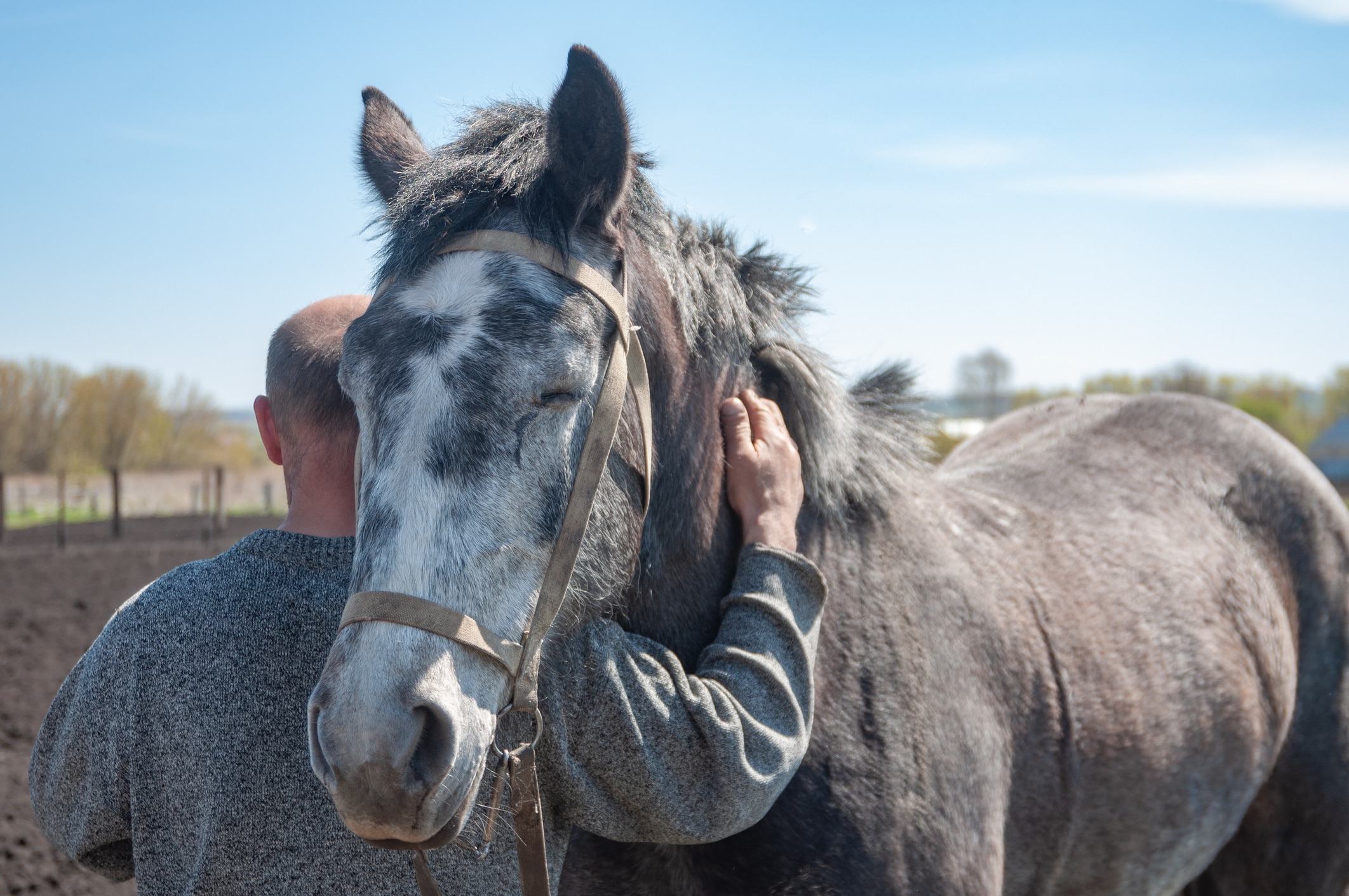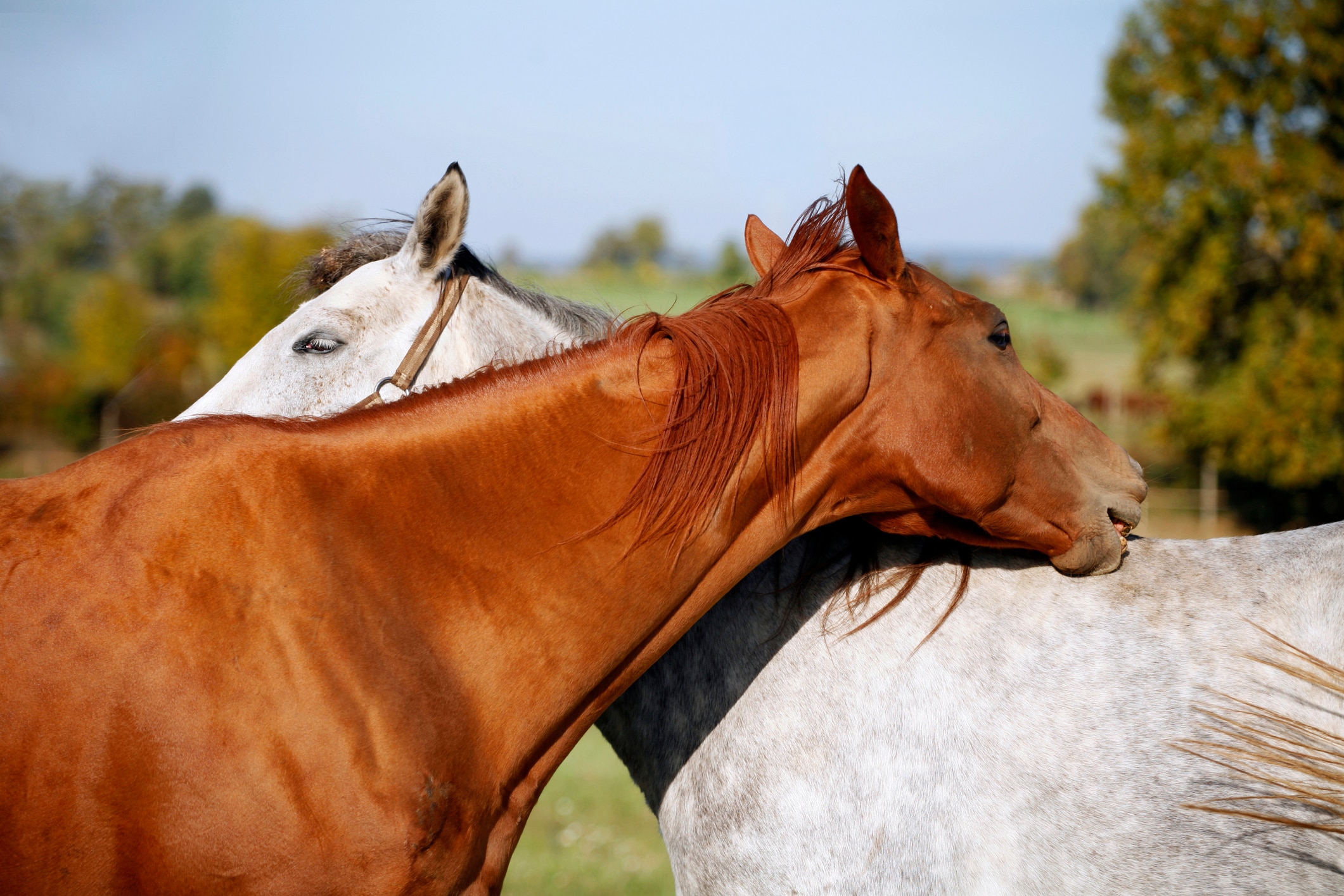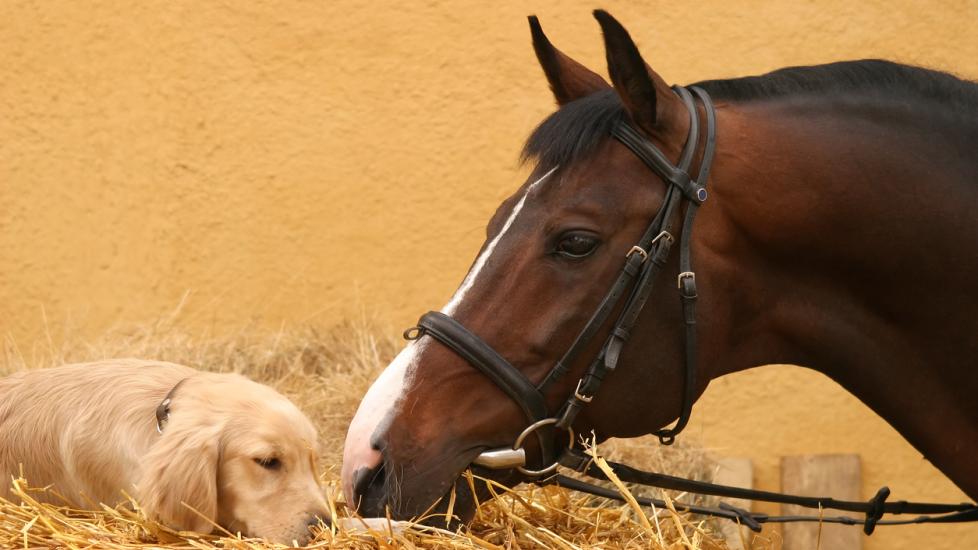Do Horses Show Affection?
iStock/Somogyvari
Horses are naturally social and kind animals. They cannot verbalize “I love you,” but they can communicate those sentiments through their actions. So how do horses show affection?
Do Horses Bond With Humans?
Horses become very relaxed when they are in the company of someone they respect and trust.
Signs that horse trusts you include:
-
Decreased heart rate and breathing rate
-
Adopting a relaxed posture where one hind foot is crossed over the other and rested on the ground
-
Eyes may appear soft and sleepy
-
Muzzle may relax and get droopy
-
Head may lower
-
Being able to approach a horse laying down

How Do Horses Show Affection?
When a horse shows you respect, that also indicates that he likes you. They will accept you as their leader and do what they are asked.
6 Signs That a Horse Trusts You
-
When you are grooming your horse, he may reciprocate this care and affection and “groom” you back.
-
A horse may nibble at your shoulders or head, lay his head on your shoulders, or nudge you in the back, like a mini “back massage.”
-
A loving horse will follow you without a lead rope or halter.
-
When you enter the barn and your horse hears you, he will whinny or nicker in greeting.
-
Horses may trot directly over to their loved one when they first see them.
-
Sometimes horses will blow air in your face through their nostrils to show you they care about you, like they do with other horses.
How To Get a Horse to Like You
The affection our horses show us is based on their feelings of trust toward us. To develop that trust, you must spend quality time with your horse. This may include:
-
Riding time either in an arena or on trails
-
Groundwork exercises such as carrot stretching or freestyle work
How Horses Show Affection for Other Horses
As horses show their owners and caretakers affection, they will also show affection toward their herd mates and other horses.
Horses are social creatures that are meant to be in herds. They typically having a pecking order within the herd and communicate in a variety of ways to show affection.
As mentioned, horses will lift their head and blow gently through their nostrils into each other’s faces. This is their version of a horse handshake.
It is also very common to see horses grooming each other; mostly itching each other’s backs, shoulders, and withers. They will also rest their muzzles on each other’s backs. Just like as they call to you when you arrive to see them, they call and whinny for each other.

In herds, horses will sleep next to each other, not only for warmth and protection, but out of affection as well.
On trail rides, they will buddy up due to their normal social nature and herd mentality. However, this can sometimes make things difficult if one buddy is not going on the trail ride that day.
Horses will also run around the paddock chasing each other for fun, like a game of tag.
How Horses Show Affection for Other Animal Species
Horses will even express interest in their smaller animal companions. They may stretch their neck out to sniff and greet the resident barn cat, or curiously nose at a friendly dog.
Horses also enjoy the companionship of wildlife. In some cases, small barn birds will perch atop a horse’s back or neck while they are resting in their stall. Horses are also used to sharing their pasture with deer or moose.
Beware of unfriendly creatures like raccoons, bats, foxes, or possums, as these animals can carry disease such as EPM or rabies. As always, vaccination is strongly encouraged to help protect horses from various diseases potentially contracted through encounters with wildlife.
